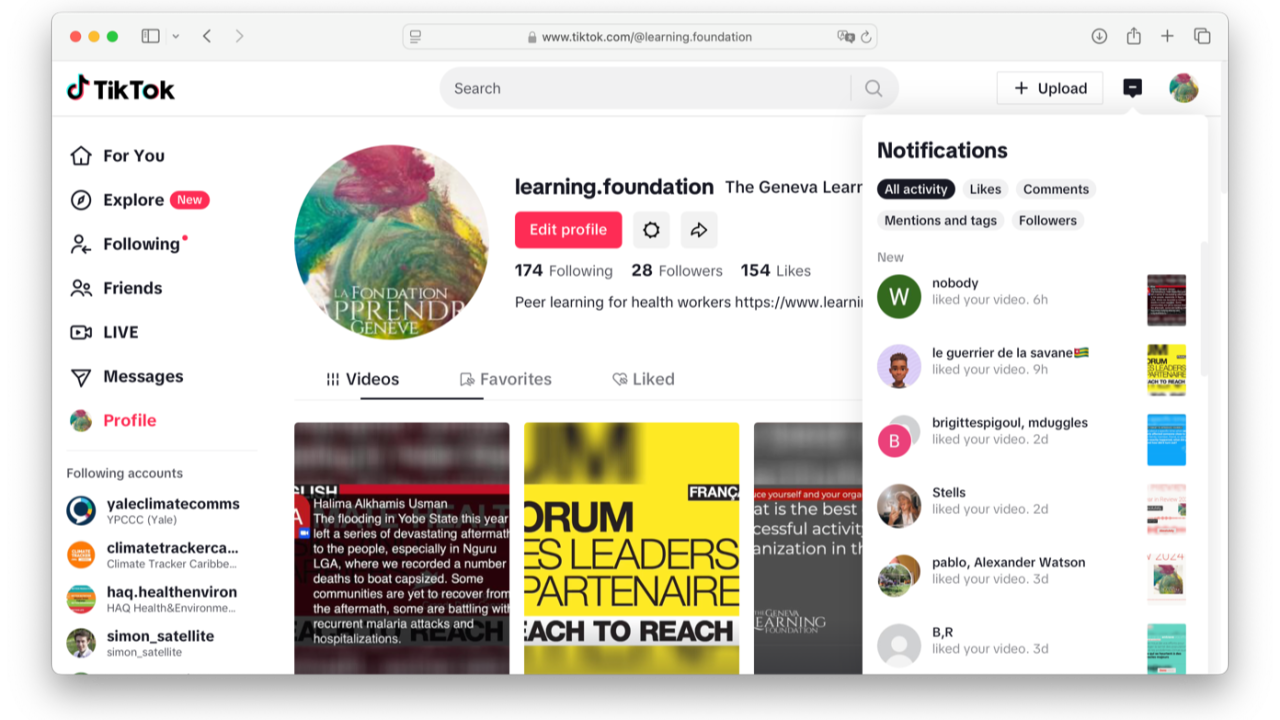social learning
-
Learning TikTok
🔗 https://www.tiktok.com/@learning.foundation The Geneva Learning Foundation launches on TikTok: Meeting learners where they are to build meaningful connections Are you on TikTok? With over two billion active users, TikTok is where information increasingly flows in today’s world, especially in Africa, Asia, and Latin America where most of our learning communities work for health. We know…
Written by

-
The Nigeria Immunization Collaborative: Early learning from a novel sector-wide approach model for zero-dose challenges
Less than three weeks after its launch, the Nigeria Immunization Collaborative – a partnership between the Geneva Learning Foundation, the National Primary Health Care Development Agency (NPHCDA), and UNICEF – has already connected over 4,000 participants from all 36 states and more than 300 Local Government Areas (LGAs). The Collaborative is part of the Movement for…
Written by

-
What learning science underpins peer learning for Global Health?
Watch Reda Sadki’s presentation about peer learning for global health at the Annual Meeting of the American Society for Tropical Medicine and Hygiene (ASTMH) Symposium on 19 October 2023 Most significant learning that contributes to improved performance takes place outside of formal training. It occurs through informal and incidental forms of learning between peers. This…
Written by

-
ASTD Learning Executive Briefing: Reda Sadki
This article was first published by the ASTD’s Learning Executive Briefing. By Ruth Palombo Weiss Reda Sadki is the Senior Officer for Learning Systems at the International Federation of Red Cross and Red Crescent Societies (IFRC) Q: Why do you think the Red Cross Movement has a deeply rooted culture of face-to-face training for its 13.6…
Written by
